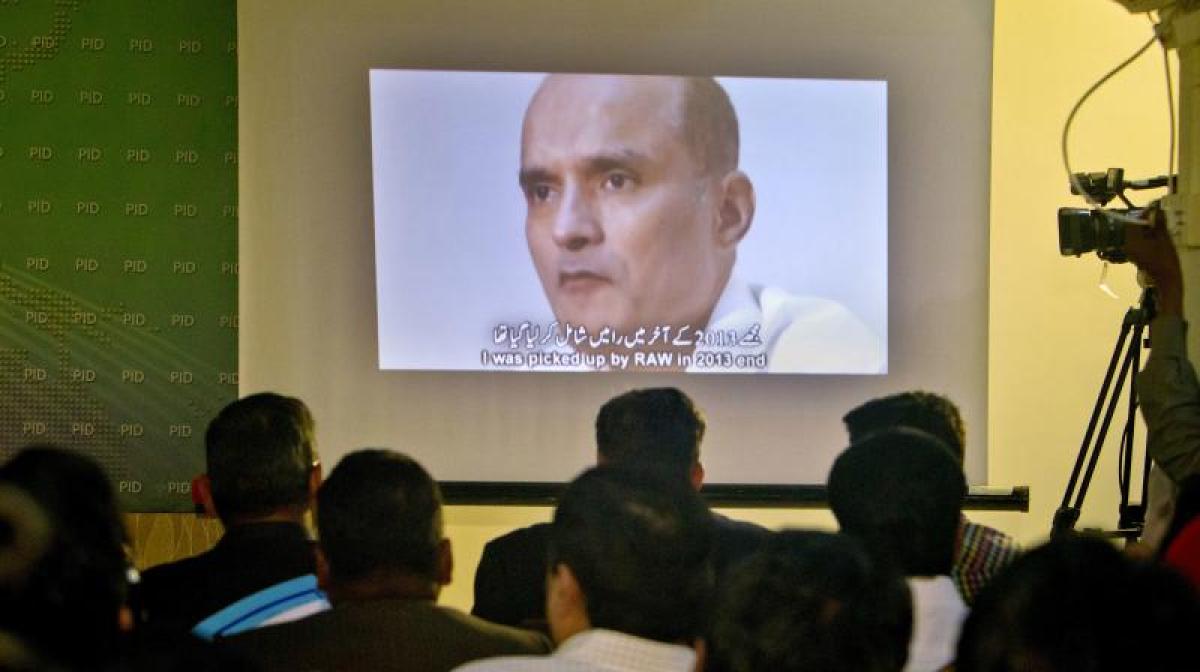Big win for India: Pakistan can't hang Jadhav till final verdict, rules ICJ

It is after 18 years that the two neighbours were fighting it out at the ICJ. Last time, Pakistan had moved the ICJ seeking its intervention over the shooting down of its naval aircraft.
In a big diplomatic win for India, the International Court of Justice (ICJ) at the Hague Thursday stayed the execution of former Indian naval officer Kulbhushan Jadhav by Pakistan till it takes a final decision on the matter.
A Pakistan military court had awarded the death sentence to Jadhav, who was arrested on March 3 last year, last month for espionage and subversive activities.
Also read: ICJ to decide if Pakistan can hang former Indian naval officer Jadhav
India had dragged Pakistan to the ICJ on May 8 for refusing consular access to Jadhav and for violating the Vienna Convention on consular relations.
Highlights of the ruling:
- Indian Attorney General Mukul Rohtagi, after the ICJ ruling, said the final decision will be declared in August.
- Appropriate to say that Pak shall take all measures at its disposal to ensure Jadhav is not executed pending final decision, the ICJ says.
- The ICJ stays death sentence given to Kulbhushan Jadhav by Pakistani military court until further notice.
- The mere fact that he may be executed is sufficient to demonstrate that there is a risk of irreparable damage.
- It appears that the rights invoked by India in the present case are plausible, says Judge Abraham.
- The rights invoked by India under Article 36 of the Vienna Convention are proven.
- All parties under Vienna Convention have rights to provide consular assistance to their nationals.
- Both India and Pakistan agree that Jadhav is an Indian citizen.
- 2008 agreement between India, Pakistan does not restrict the ICJ from jurisdiction in this case.
- India should have been given consular access as per Vienna Convention.
- The alleged failure by Pakistan to provide consular access to Jadhav as requested by India appears to be falling within the scope of Vienna Convention.
- On the date an appeal was filed, a dispute existed between India and Pakistan as to the trial and sentencing of Jadhav, Judge said.
- Judge Ronny Abraham, President of the Court, says that the objections to Article 36 of the Vienna Convention do not apply in this case.
- During its submission to the ICJ on May 15, India had demanded the immediate annulment of Jadhav's death sentence, expressing fears that Pakistan could execute him even before the hearing at the ICJ was over.
While India asserted that Jadhav was kidnapped from Iran where he was involved in business activities after retiring from the Indian Navy, Pakistan had claimed to have arrested Jadhav from its restive Balochistan province.
On its part, Pakistan had told the ICJ that Vienna Convention provisions on consular access were not intended for a "spy" involved in terror activities and charged India with using the world body as a stage for "political theatre" in the Jadhav case.
It is after 18 years that the two neighbours were fighting it out at the ICJ. Last time, Pakistan had moved the ICJ seeking its intervention over the shooting down of its naval aircraft.















